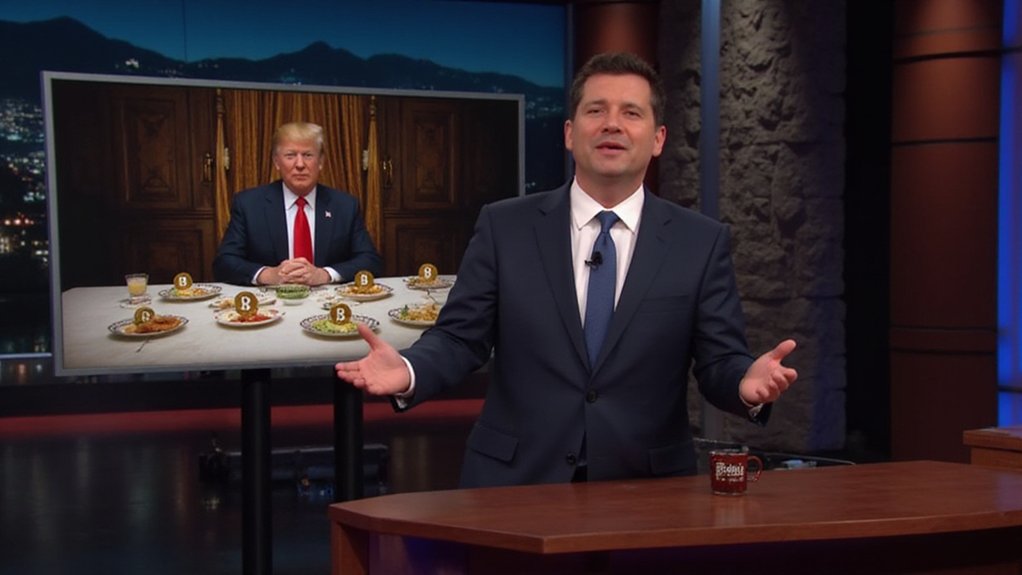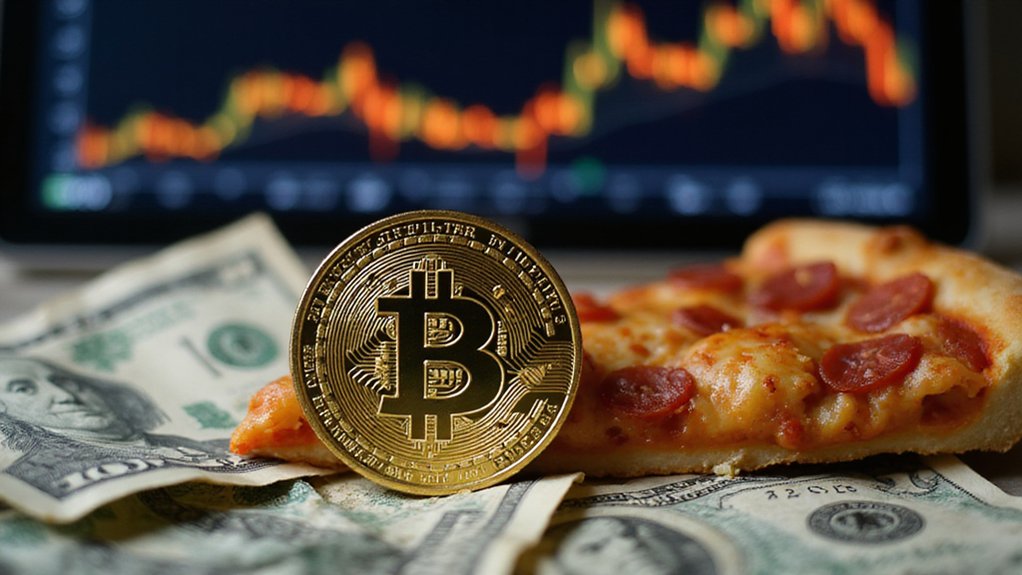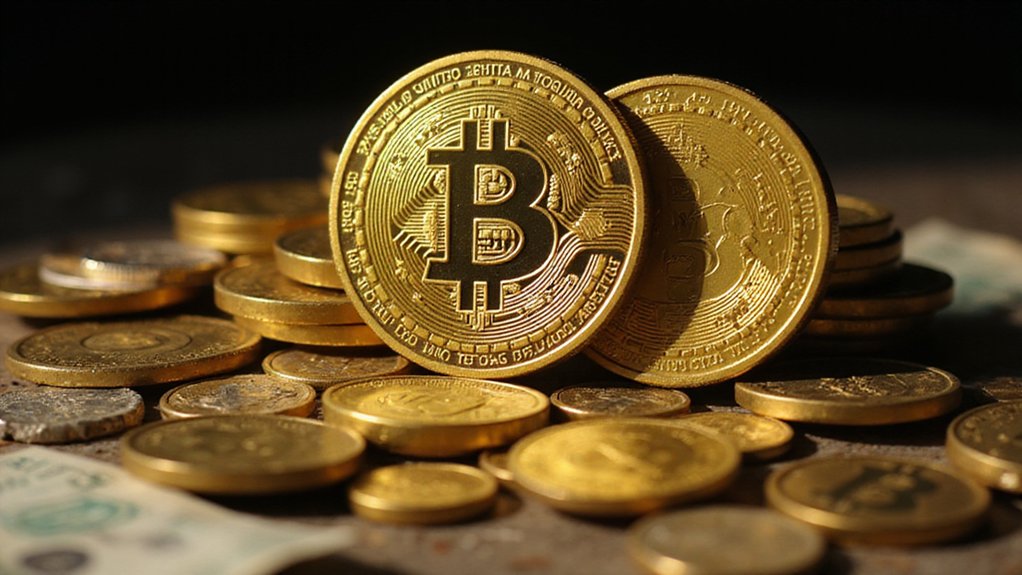How does one adequately satirize a dinner where the price of admission rivals the GDP of a small nation?
Late-night host Jimmy Kimmel confronted this challenge when addressing former President Trump’s recent cryptocurrency banquet, where affluent digital asset enthusiasts paid between $55,000 and an astonishing $37.7 million per seat for an hour of proximity to political influence.
The exclusive gathering, held at Trump’s Virginia golf club, attracted over 200 wealthy crypto investors primarily associated with a Trump-themed meme coin.
Kimmel, known for his incisive political commentary, highlighted the event’s unprecedented pay-to-play dynamics while noting the conspicuous anonymity of most attendees—a troubling opacity in the intersection of vast wealth and political access.
Vast fortunes buy nameless seats at democracy’s table—the ultimate dark money spectacle
Democratic lawmakers promptly condemned the banquet as flagrant corruption, while their Republican counterparts maintained a telling silence.
Ethics experts expressed alarm at the blatant commodification of political influence, with the staggering admission fees suggesting a quid pro quo arrangement that transcends traditional campaign fundraising paradigms.
Media coverage framed the dinner as a “crypto Met Gala,” with MSNBC’s extensive analysis emphasizing its historic implications for political ethics.
The event’s secretive nature—coupled with its astronomical price points—has established a new benchmark for influence peddling in American politics, one that Kimmel’s satirical lens struggled to exaggerate beyond its inherent absurdity.
The wide variance in ticket pricing (a spread of over $37 million) suggests a sophisticated arbitrage of access, with attendees potentially calibrating their investment against anticipated regulatory benefits.
This calculated approach to political influence represents a disturbing evolution in campaign finance, where digital asset enthusiasts openly trade capital for proximity to power.
Some policy experts have suggested that governments might instead consider establishing strategic bitcoin reserves as a legitimate approach to integrating cryptocurrency into mainstream financial systems rather than through backdoor political influence.
As the crypto industry increasingly seeks political legitimacy through such high-profile engagements, Kimmel’s comedic treatment of the banquet underscores a more profound concern: when satire struggles to outpace reality, democracy faces its most formidable challenge.
For when political access becomes so explicitly monetized, the line between comedy and tragedy blurs beyond recognition.








